China-Taiwan Weekly Update, May 30, 2024
May 31, 2024 - ISW Press
Taiwan’s Legislative Yuan (LY) passed legislative reforms to strengthen the legislature’s oversight powers over the government.

Taiwan’s Legislative Yuan (LY) passed legislative reforms to strengthen the legislature’s oversight powers over the government.
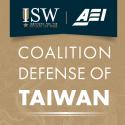
Tens of thousands of demonstrators gathered outside the Legislative Yuan on May 21 and May 24 to protest the advancement of a controversial legislative reform bill in the Legislative Yuan.

Xi held a series of meetings with European and Russian leaders in April and May, after which he likely concluded that the PRC could maintain and deepen economic ties with Europe while continuing to support Russia’s war against Ukraine.
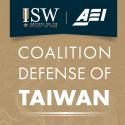
Fear that the People’s Republic of China (PRC) will invade Taiwan and draw the US into a massive war in the Pacific has for many years driven an increasing American focus on preparing for conflict with the PRC. The expansion of PRC military capabilities and Beijing’s announcement of military expansion milestones in 2027 have intensified those fears and sparked intense debates about America’s potential role in and readiness for deterring and defeating a PRC invasion.

The Chinese Coast Guard (CCG) has normalized patrols around Kinmen, a Taiwan-controlled island with a large military garrison roughly 3 kilometers from the coast of the PRC. The CCG began patrols in Kinmen’s prohibited waters in February after two PRC fishermen drowned while fleeing from a Taiwanese Coast Guard pursuit on February 14. The PRC pledged after the incident to strengthen law enforcement activities around Kinmen. The PRC has increased the frequency of CCG patrols in Kinmen’s waters and the volume of ships per event since it began routine violations in late February.

The People’s Republic of China (PRC) eased cross-strait trade and travel restrictions after hosting a Kuomintang (KMT) delegation. The PRC ended the trade bans after hosting the KMT delegation as a form of economic coercion that aims to reduce domestic support for the Democratic Progressive Party (DPP) in Taiwan. KMT Caucus Whip Fu Kun-chi traveled to the PRC on April 26, where he met with CCP officials throughout the weekend. Fu met with General Administration of Customs Deputy Director Zhao Zenglian on April 28.

The PRC unilaterally opened two eastbound connecting flight routes near Taiwanese airspace over the Kinmen and Matsu islands. The move is likely part of a CCP effort to strain Taiwan’s situational awareness around its airspace and put pressure on Taiwan’s incoming Lai Ching-te administration.
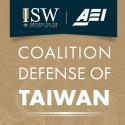
ROC opposition parties advanced a bill in the Legislative Yuan (LY) that aims to strengthen the LY’s oversight of the government. Passing the bill could hamper the DPP-led government’s ability to implement its policies. Political feuding that impedes the DPP’s ability to govern is favorable to CCP interests.
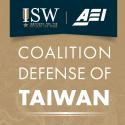
CCP General Secretary Xi Jinping met with former ROC President Ma Ying-jeou on April 10 for the first time since 2015. The Xi-Ma meeting is consistent with a CCP effort to legitimize the KMT as its negotiating partner in Taiwan and to promote the Ma administration’s cross-strait policies as its preferred vision of cross-strait relations.
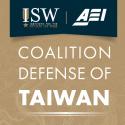
CCP General Secretary Xi Jinping emphasized cross-strait relations and economic issues in the US-PRC relationship during a phone call with US President Joe Biden on April 2. The PRC readout of the call did not address the US security concerns, including the PRC's support for Russia and heightened tensions in the South China Sea. Xi and Biden spoke by phone on April 2, in their first direct conversation since their meeting in San Francisco on November 15, 2023. According to the PRC readout of the call, Xi warned that the PRC considers the “Taiwan question” a “red line” and will act to counter Taiwanese “separatists” and external support for them.